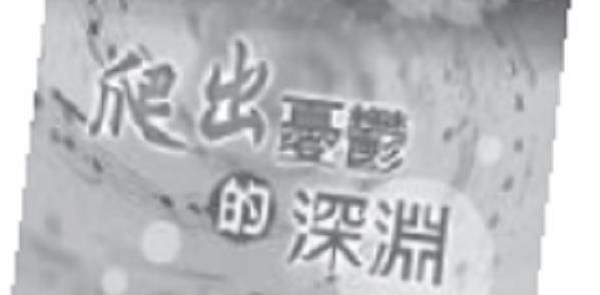Information
(Thanks to Dr. Yip Ng Keng Yee, senior clinical psychologist for providing consultation) Possible causes
‧Past harm─including violence, sexual assault, and emotional harm.
‧Certain drugs - For example, one of the side effects of certain drugs to control high blood pressure is an increased chance of depression.
‧Interpersonal conflict-problems in relationships with relatives or friends.
‧Death of relatives or friends.
‧Family inheritance - If there are cases of depression in the family, it will increase the chance of suffering from it.
‧Major changes in life - job changes (unemployment or new job), marriage, divorce, retirement, etc.
‧Personal difficulties - living in isolation due to physical or mental illness, or being abandoned by family or friends.
‧Endocrine disorders (such as insufficient thyroid secretion), postpartum depression, seasonal depression, etc.
‧Substance abuse─including prescription drugs, alcohol, drugs, etc.
The main symptoms
According to the Diagnostic and Statistical Manual of Mental Disorders, fourth edition (DSM-IV) published by the American Psychiatric Association (APA).
‧Melancholic mood.
‧Excessive guilt and low self-worth.
‧Sleep disorders, including excessive sleeping or insomnia.
‧Reduced activity level, lack of energy, and fatigue.
‧Slow movement or irritability.
‧Loss of interest in activities that you used to enjoy doing.
‧Weight gain or loss exceeding 5% within one month.
‧Unable to concentrate, think, judge, or make decisions.
‧Having thoughts of committing suicide.
treatment method
1. Antidepressants
✽Monoamine reuptake inhibitor─
‧Serotonin and norepinephrine reuptake inhibitors (SNRIs): Common ones include tricyclic antidepressants, Venlafaxine (Efexor®), Duloxetine (Cymbalta®), etc.
‧Selective serotonin reuptake inhibitors (SSRIs):
Common ones include Fluoxetine (Prozac®), Paroxetine (Seroxat®), etc.
‧Norepinephrine and dopamine reuptake inhibitors: such as Bupropion (Wellbutrin®, Weibojun).
✽Monoamine oxidase inhibitor.
✽Monoamine receptor modulator─
‧It can regulate the effect of monoamines on nerve receptors, such as Trazodone (Mesyrel®), Mirtazapine (Remeron®), etc.
2. Psychotherapy
‧Cognitive therapy, behavioral therapy, and cognitive behavioral therapy - Understand how thoughts and behaviors affect depression, and learn new ways to cope with stress and your own stereotypes.
‧Interpersonal therapy: Understand the impact of current interpersonal relationships on depression and unhealthy behaviors, and learn to change them.
‧Psychodynamic therapy - looking for whether depression stems from childhood trauma.
‧Individual counseling - one-on-one counseling to set up strategies to control stress and avoid the worsening or recurrence of depression.
‧Support groups - care and support from relatives and friends, spiritual counseling from pastors.
3.Electroconvulsive Therapy (ECT)
The patient is placed under general anesthesia and has tightly controlled electrical waves passed through the brain, causing brief convulsions. The chemical changes produced in the brain by electrotherapy can quickly improve some psychological conditions. Usually used when other treatments fail to produce significant results.
source
‧http://www.webmd.com/depression/guide/default.htm
‧http://www.christianstudy.com/data/pastoral/depress02.html
‧http://www.e-pharm.info/tw/safety/1171
Pastoral Retreat/Counseling Center
A place for full-time Christian workers to rest, receive counseling, and renew their souls (for non-Chinese people).
‧Link Care Center
1734 West Shaw Avenue, Fresno, CA
(559) 439-2647
www.linkcare.org
info@linkcare.org
kenroyer@linkcare.org
‧Marble Retreat
www.marbleretreat.org
(970)963-2499
MinistryCare@marbleretreat.org
Further reading

‧"Songs of Rebirth for Depression - From Spiritual Sorrow to Master of Joy"(Depression: Looking Up from the Stubborn Darkness), written by Edward T. Welch, translated by Guan Xiuwen, Christian Messengers Association, Pennsylvania, 2012.

‧"How far is peace from you - Overcome fear and protect your mind from poison"(Running Scared: Fear, Worry, and the God Rest), written by Edward T. Welch, translated by Qiu Jingxian, Christian Messengers Association, Pennsylvania, 2012.

‧"Get out of the haze and face the blue sky", Jiang Haiqiong, True Love Family Magazine Issue 33 (March 2007). There is also a single booklet "Climbing out of the abyss of depression".
